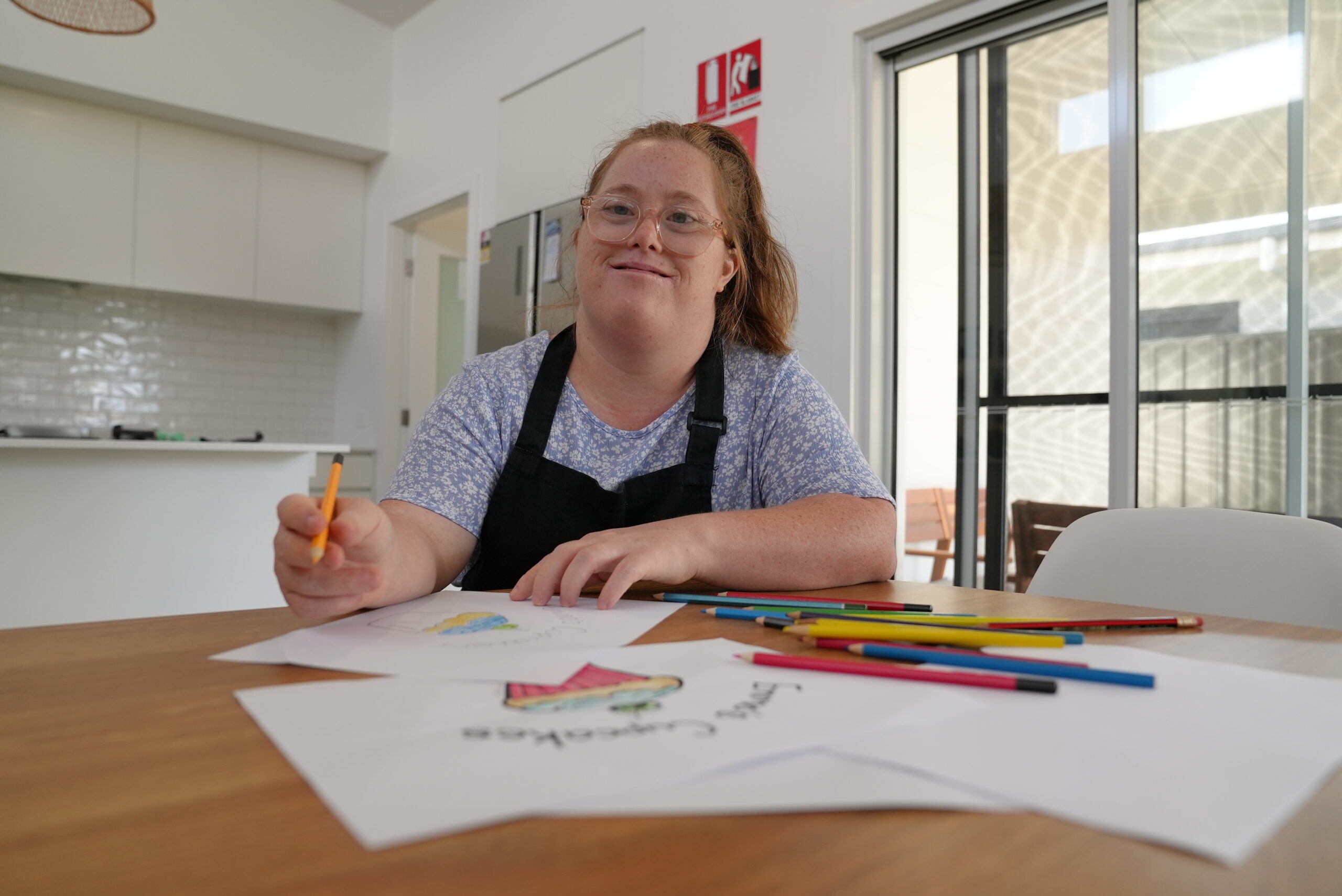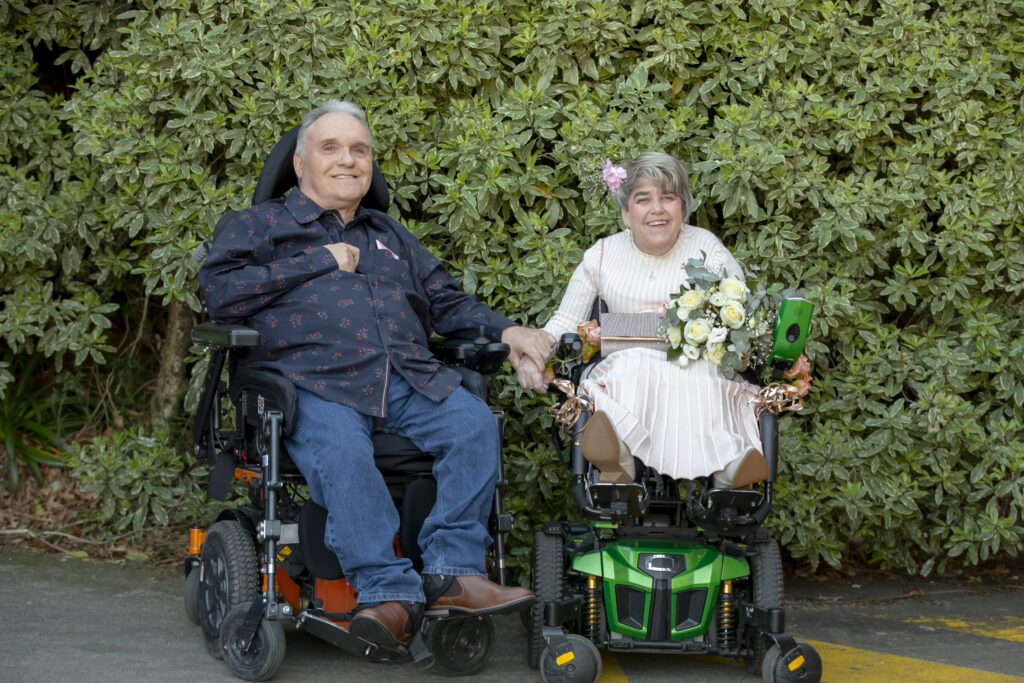
The NDIS Functional Capacity Assessments (FCA) ensures that as an NDIS participant you are receiving the appropriate supports and funding you need to achieve your goals.
These assessments can be requested by the NDIS or a participant (such as you) at any time. However, they often occur for initial access to the NDIS, when your plan is being reassessed, at life transitions, or when your functional needs have changed.
At Northcott, our qualified and committed occupational therapists play a key role in supporting customers with these types of assessments.
If you are a person with disability, or you care for a child or adult with disability, it is important to understand what a Functional Capacity Assessment is and how Northcott can assist with completing one.
What is a Functional Capacity Assessment?
An NDIS Functional Capacity Assessment (FCA) evaluates your ability to complete daily tasks and activities in your home, community and work environment. It is designed to assess what you do well (your strengths) and where you may have difficulties (your challenges) in areas such as mobility, self-care, social interaction and decision-making. The purpose of this type of assessment is to help determine the level and type of support you may need to achieve your goals, live safely and lead a fulfilling life.
A Functional Capacity Assessment can be pivotal in determining the amount of funding you may receive for supports and services such as therapy to build your capacity for daily activities as well as assistive technology, home modifications and in-home and community supports. It provides a clear picture of your needs, helping the NDIA to plan and allocate resources and funding effectively.
How do occupational therapists support Functional Capacity Assessments?
Occupational therapists are uniquely qualified to conduct these assessments because of their expertise in understanding how physical, emotional and cognitive factors influence a person’s ability to function in everyday life.
At Northcott, our occupational therapists are skilled at conducting Functional Capacity Assessments. This team of allied health professionals also play an important role in supporting customers through every stage of the NDIS process.
An occupational therapist’s role
1. Holistic evaluation
When conducting a Functional Capacity Assessment, Northcott’s occupational therapists take a holistic approach. This means they consider your entire lifestyle, including where you live, how you participate in the community around you and your personal goals. The assessment covers a range of functional areas such as:
- Mobility: Can you move safely around your home and community?
- Self-care: Can you manage daily activities such as dressing, bathing and feeding yourself?
- Communication: Can you effectively communicate your needs and desires?
- Social interaction: Can you engage in meaningful interactions with others?
- Decision-making: Are you able to make decisions about your own care and daily activities?
2. Tailoring the assessment
At Northcott, we recognise that everyone has unique needs. Our qualified team of NDIS occupational therapists will ensure that your Functional Capacity Assessment is personalised. They will focus on areas of life that are most relevant and important to you. The assessment will allow our therapists to get to know you through discussions, observing you doing day-to-day tasks, and also through formalised assessments. Our therapists may meet you in your home, your day program, school or community to get a full and clearer understanding of your daily life.
3. Communicating with you and your network
The process to complete this type of assessment often involves multiple stakeholders, including you and your family, as well as other key people in your support network such as your carers and support coordinator. Your Northcott occupational therapist will oversee the process, ensuring that all parties are informed and involved in the assessment. At Northcott, communication is key and we respect what matters to you. Our occupational therapists will work with you in discussing the supports for your NDIS plan.
4. Recommending assistive technology and home modifications
As part of the Functional Capacity Assessment process, your occupational therapist may recommend assistive technology or home modifications to improve your independence and quality of life. For example, if you have limited mobility, you may benefit from a wheelchair or home modifications such as ramps and grab rails. Occupational therapists at Northcott have expertise in identifying these needs and clearly articulating recommendations for support to the NDIS.
5. Advocacy and report writing
One of the most important tasks for your occupational therapist during the Functional Capacity Assessment process is advocating on your behalf. This often involves detailed report writing, where your occupational therapist will explain the findings of the assessment and justify the need for specific supports. At Northcott, our occupational therapists are experienced in preparing clear and comprehensive reports that help NDIS decision-makers understand your needs. This advocacy can be critical in securing the appropriate level of funding and support you need to achieve your goals.
Contact Northcott for support with your Functional Capacity Assessment
As trusted professionals in the disability sector, Northcott’s occupational therapists will make sure your functional capacity and individual needs are fully recognised and outlined in your Functional Capacity Assessment.
Northcott occupational therapists have immediate availability for Functional Capacity Assessments face to face and via Telehealth. Contact us today!
More about our Allied Health services:
Occupational Therapy Speech Therapy Physiotherapy Therapy Telecare Social Work


Accessibility and Inclusivity
We respect and honour Aboriginal and Torres Strait Islander Elders past, present and future. We acknowledge the stories, traditions and living cultures of Aboriginal and Torres Strait Islander peoples on this land and commit to building a brighter future together.
Read more about our commitment to reconciliation

